The Export and Import sector plays a crucial role in driving Odisha’s economic growth by promoting trade, enhancing market access, and generating revenue. As one of India’s prominent states for industrial growth, Odisha has considerable potential in various export-import markets, particularly in sectors such as minerals, agriculture, textiles, and manufacturing. The Odisha Chamber of Commerce (OCC) can help create a robust framework for boosting export activities, facilitating international trade, and supporting businesses in tapping into global markets.
Here’s a breakdown of the key sectors in Export and Import that OCC could focus on to enhance trade in Odisha:
Iron Ore Export: Odisha is one of India’s largest producers of iron ore, which is a key raw material for steel production. OCCI can facilitate partnerships with international buyers, encourage long-term export agreements, and ensure sustainable extraction practices.
Coal and Power: As a major coal-producing state, Odisha can boost its coal exports, especially to countries in Southeast Asia, the Middle East, and East Asia. Promoting clean coal technologies and power generation from coal can also provide export opportunities.
Steel and Ferro-Alloys Export: Odisha is home to major steel plants like Tata Steel and JSW Steel. By enhancing the export of steel and ferro-alloys, the state can contribute significantly to India’s overall metal exports.


Aluminium Export: Odisha has large-scale aluminium production units, with companies like Nalco (National Aluminium Company Limited) contributing significantly to aluminium output. The export of aluminium products can be enhanced by forming global trade partnerships.
Other Metals and Alloys: Promote exports of various non-ferrous metals and alloys such as copper, zinc, and nickel, especially considering the growing demand in global markets for electronic components and battery materials.
Rice Export: Odisha is a major rice-producing state, particularly Basmati and non-Basmati varieties. OCCI can facilitate the export of rice to countries like the Middle East, Africa, and Southeast Asia.
Pulses and Legumes: Promote the export of pulses like lentils, chickpeas, and pigeon peas, which are in high demand in global markets, especially in the Middle East, North America, and Africa.
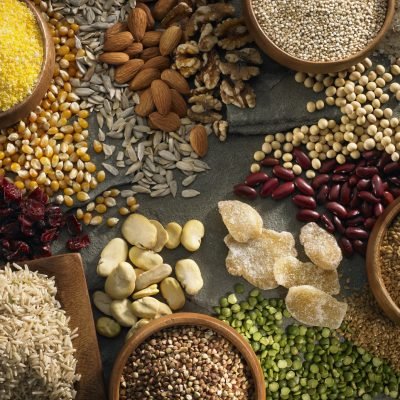
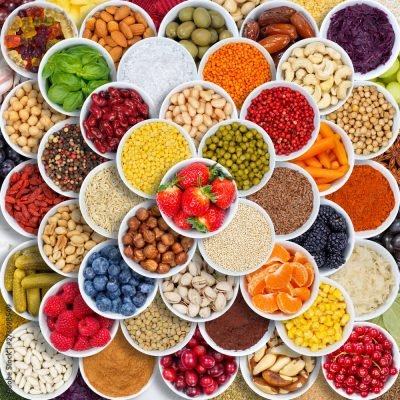
Fresh Produce: Encourage exports of fresh fruits and vegetables such as mangoes, guavas, and pineapples to international markets. Packaging and quality control standards are essential to meet international demand.
Spices and Condiments: Odisha can export a variety of spices, including turmeric, black pepper, and ginger, to regions like Europe, the Middle East, and Asia, where demand is steadily increasing.
Processed Foods and Ready-to-Eat Meals: Export processed food products, pickles, sauces, and ready-to-eat meals that are manufactured using local produce.
Fish and Seafood Export: Odisha’s long coastline offers immense potential for seafood exports, particularly shrimp, prawns, and fish. OCCI can help facilitate cold storage and packaging to meet global standards and increase exports to markets like the US, EU, and Japan.
Value-Added Seafood Products: Promote the export of processed and value-added seafood products like frozen fish, fish fillets, and canned seafood products to global markets.
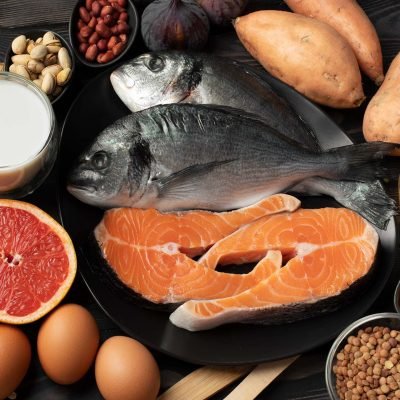

Odisha Handloom Products: Odisha’s handloom products, including Sambalpuri and Ikat textiles, have a rich tradition. These products have a growing demand in international markets. OCCI can help promote these textiles at global trade shows and fairs.
Ethnic Wear Export: Export of Odisha’s traditional ethnic wear, such as sarees, shawls, and garments, can be expanded, especially in the markets of Europe and North America.
Apparel Export: Odisha can increase its apparel exports by encouraging the manufacturing and export of ready-made garments, including knitwear, t-shirts, and sportswear, catering to both high-end and mass-market segments.
Textile Manufacturing Units: Promote the establishment of textile manufacturing hubs in Odisha that are capable of producing large volumes of garments and textiles for export to international markets.


Auto Parts and Accessories: With the presence of several automobile manufacturers in Odisha, the state has the potential to export automotive components such as engines, tires, suspension parts, and electrical components to global markets.
Electric Vehicle Components: With the rising demand for electric vehicles (EVs), there is growing potential for Odisha to export electric vehicle components, including batteries, motors, and charging equipment, especially to the European and North American markets.
Engineering Products Export: Encourage the export of heavy engineering products such as construction machinery, mining equipment, and industrial machines, particularly to markets in Southeast Asia, the Middle East, and Africa.
Electrical and Power Equipment: Odisha can export electrical transformers, generators, and renewable energy equipment, especially given the state’s growing focus on renewable energy sources like solar power.
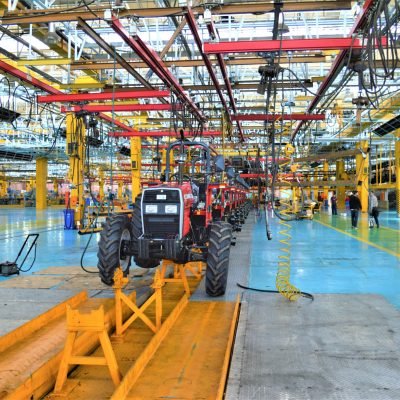

Solar Panels and Components: As Odisha is focusing on expanding its renewable energy capacity, there is a growing opportunity to export solar panels, solar inverters, and other solar-related components to countries with high demand for clean energy solutions.
Wind and Hydropower Equipment:In addition to solar, export of wind turbine components and small-scale hydropower equipment could be promoted to regions with significant renewable energy projects.
Clean Energy Solutions: Encourage the export of green technologies, such as energy-efficient appliances and sustainable building solutions, to markets that are transitioning to greener economies.
Carbon Credit Trading: Odisha could leverage its renewable energy projects to participate in international carbon credit trading schemes, opening up new revenue streams for the state.


Fertilizer Exports: Odisha is a key producer of fertilizers and agrochemicals that support agricultural growth. These products have a strong export potential, particularly to neighbouring countries in Southeast Asia and Africa.
Herbicides and Pesticides: The export of specialty chemicals like herbicides, insecticides, and fungicides used in farming can also be explored for global markets.
Polymers and Resins: Odisha’s emerging petrochemical industry has potential in exporting products like plastics, resins, and other polymers to industries worldwide, especially in packaging, automotive, and construction sectors.
Synthetic Fibers and Chemicals: Promote the export of synthetic fibers, dyes, and chemicals used in textile manufacturing and other industrial applications.
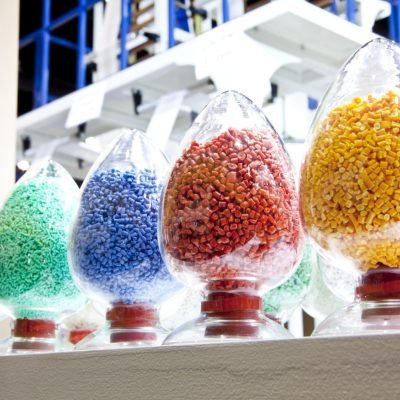

Industrial Machinery Imports: Import advanced machinery and equipment for sectors like manufacturing, textiles, agriculture, and construction, ensuring that Odisha’s industries can adopt the latest technologies for efficient production.
Construction Equipment: Odisha’s infrastructure sector requires heavy construction equipment such as cranes, excavators, and bulldozers. These can be imported from global manufacturers to support large-scale projects.
Electronics and Appliances Imports: As Odisha’s urbanization grows, there is increasing demand for consumer electronics, home appliances, and mobile phones, which could be sourced through imports.
Automobiles and Automotive Parts: With an expanding automotive market, Odisha can import vehicles and automobile components to meet local demand.


Raw Materials for Manufacturing: Import raw materials, such as specialty metals, alloys, and chemicals, required for manufacturing products, particularly in industries like steel, cement, and pharmaceuticals.
Pharmaceutical Imports: Import pharmaceutical raw materials and medicines that are not locally produced but are required for the growing healthcare needs of the population.
Port Up gradation: Improve port facilities in Odisha, particularly the Paradip Port, to handle higher volumes of both imports and exports. This would help reduce shipping times and costs, making Odisha a more attractive trade hub.
Cargo and Freight Logistics: Strengthen logistics infrastructure for efficient cargo movement, especially to support exports of bulk commodities like minerals, rice, and seafood.
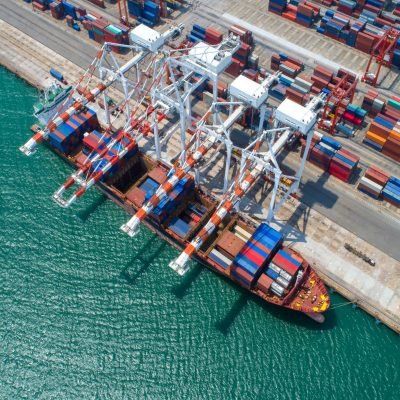
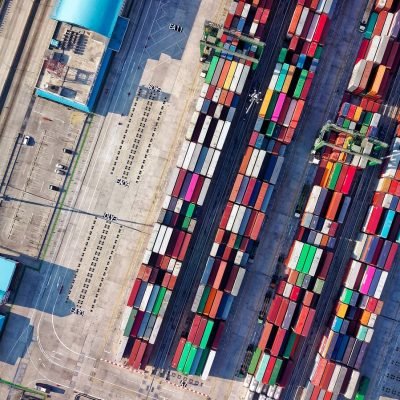
Customs and Trade Regulations: Advocate for smoother customs clearance procedures, tax incentives for exporters, and better trade facilitation mechanisms, ensuring that businesses can navigate the international trade process efficiently.